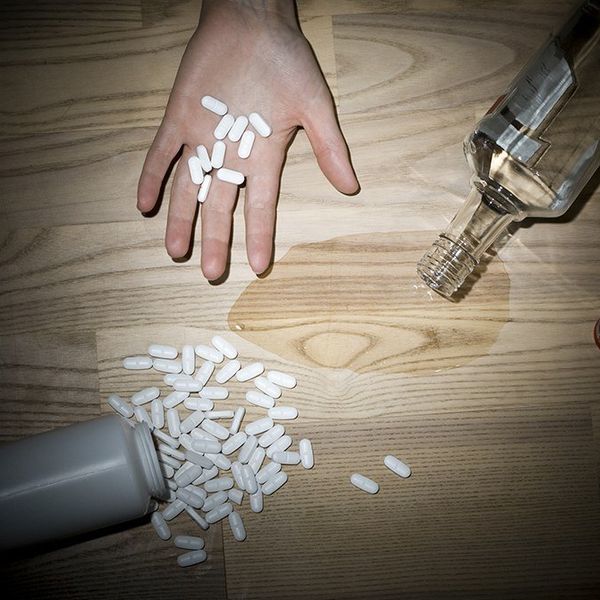Is this "America the Great" or is America where we overmedicate?
You are depressed? No problem, here is some Cymbalta. Oh, you're having trouble focusing? No worries, take some Adderall. A headache? Have a few Tylenol. What, you're having trouble in bed? Viagra it is.
According to a study published by The Journal of the American Medical Association, 59 percent of adults use at least one prescription medicine.
Our country endlessly highlights the dangers of drug addiction within its media. We can all think of a time, probably several times, that we heard about the dangers of recreational drugs. Turn on the news and you'll hear about the latest drug bust in your town. Open the newspaper and likely you'll read about the several overdoses in the obituary section. Aren't drugs terrible?
Flip the channel a few times, though, and you'll be soaking in advertisements about the good kind of drugs like anti-depressants or stimulants. Why, though? What's the difference?
Recreational drug use is regulated in America while America's drug companies have unregulated freedom. The United States and New Zealand are the only countries in the world that allow direct-to-consumer pharmaceutical advertising.
Yes, you read that right. All of those commercials advertising medication that you see? They are completely illegal almost everywhere else in the world.
Rather than working through someone's sadness or anxiety, or perhaps discussing the root of such feelings, (gasp!) our society suggests taking anti-depressants. Ironically enough, these drugs often do more harm than good.
In this advertisement for Cymbalta, an anti-depressant, 36 seconds of the one minute and 15-second commercial were spent disclaiming risks of taking the medication — some of which resulted in death.
Sadly, the risks of these medications are often looked past because it is so normal to take them. A whopping one out of 10 Americans take an anti-depressant.
Being diagnosed with ADD or ADHD has also pretty much become a norm in the United States. According to the CDC, one out of 10 children are diagnosed with ADD or ADHD.
Diagnosis for these disorders should involve extensive testing, which unfortunately isn't done. Even more unfortunate, it is incredibly easy to get a handout of medication for these disorders from your doctor.
My two sisters and I are three years apart and all had the same first-grade teacher. Each time one of us entered her classroom, she recommended to my parents that we be put on medication for ADD. Let me just disclose that my sisters and I are extremely intelligent women, and I am so happy that my parents didn't listen to the teacher who didn't want to deal with our "hyperactivity," or "distracted behavior."
This article suggests that ADHD can be diagnosed as early as the age of four, labeling the children who may have ADHD as "active and impulsive." If your four-year-old isn't active and impulsive, I would be concerned. Not vice-versa.
Children do not all have the same learning behaviors and, in turn, cannot all withstand staring at a chalkboard for hours on end — let alone seven-year-old children.
My 56-year-old neighbor, who has absolutely no history of ADD or ADHD, went to her family physician last year and complained of having issues focusing. Her doctor wrote her a prescription for Adderall that same day, which she has been using since for weight loss.
Sadly, the situations I just described are not uncommon and getting a handout of harmful medication with little-to-no effort is not unheard of.
We pop pills to fix something as small as a cold or headache although there are more natural ways to tend. Our immune systems weaken when we take drugs, even for a cold. Our bodies begin to depend on medication when we allow medication to fight off illness rather than our immune systems, which are there specifically to fight.
Addiction is real for use of any drug; the government isn't who defines the dangers of them. A drug that can be picked up at the store is not a drug to abuse just as any.
Put away the pills, America.





















